EQUINE WELFARE NETWORK PROFILE
Horse Feathers Equine Center Inc.
http://www.horsefeathersequinecenter.org

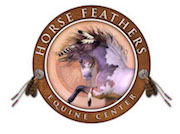
Horse Feathers Equine Center Inc.
6320 N Highway 74C
GUTHRIE, OK 73044
Mailing Address:
6320 N Highway 74C
GUTHRIE, OK 73044
Phone: 405-260-7281
MAKE AN INQUIRY
View our WEBSITE
EIN: 20-5165544Founded: 2006
View our PHOTO GALLERY
Profile Last Updated December 28, 2025Public Charity
NEXT CHAPTERS! Click here to view listings of our adoptable equines: Arian - Bayli - Ginger - Jiggs - Lil Dude

2025
The Guardian Seal of Transparency is awarded annually to recognize an organization's commitment to transparency and accountability by their willingness to make comprehensive data about their programs, horse care practices, and governance available for public scrutiny. The Guardian Seal of Transparency is NOT an endorsement.
Awarded Annually
Last Updated: August 14, 2025
Last Updated: August 14, 2025
Horse Feathers Equine Center Inc. has not attained the Guardian designation for 2026.
MISSION & PROGRAMS
Mission:Our mission is to rescue, rehabilitate, and rehome abused and neglected horses, providing the healthcare and training they need to find forever homes.
Our organization provides programs involved with equine rescue, adoption & retirement
Our organization conducts Equine Assisted Services in accordance with the EQUUS Foundation Guidelines on Qualifications of Organizations Conducting Equine Assisted Services (EAS).
Our organization provides outreach and/or public education programs involving horses.
100% of our total programs and services are equine-related.
Our organization is directly responsible for the care and shelter of equines involved in our programs.
Our organization does not CURRENTLY use satellite, overflow, foster, and/or outreach facilities.
Please describe what steps your organization takes to ensure that:
1) all interactions between your equines and people are mutually beneficial and conducted in accordance with the Guidelines for Human-Equine Interactions stated below;
2) all equines in the care of our organization and/or equines that participate in the organization's program have access to clean drinking water at all times; nutritious food in sufficient quantity, including natural forage such as pasture grass and/or hay; appropriate veterinary, farrier, and dental care; shelter and protection from the weather; sufficient safe space to move around comfortably on a daily basis; and daily opportunity to freely interact and have contact with other equines:
Interactions between humans and equine at the facility are attended by Horse Feathers experienced volunteers. The organization honors any volunteer or visitor who are not comfortable around horses and does not force anyone to work in proximity to them. Likewise, any equines who appear distressed with any human or groups will be removed from the immediate area. Equines that have shown an easy temperament may be selected to have more human interaction, for example, increased availability for grooming by visitors. Equines with a more nervous personality are in pastures with more restricted access from visitors and/or volunteers.
All pastures contain a shelter, round hay bales, and automatic waterers that are cleaned regularly. Older equines as well as those with health conditions are fed grain and supplements daily to supplement their nutritional intake from hay. Equines are provided with regularly scheduled trims by the farrier, and chiropractic and dental services (as needed). Equines are not kept inside barn areas unless they are in quarantine or otherwise have a medical need. Smaller pastures and/or enclosures near the barn are mucked regularly, and the manure is moved to a separately enclosed area to prevent cross contamination.
New intakes are evaluated by veterinary professionals as needed, and they are slowly introduced into the existing herd after a quarantine period. Their integration is closely monitored by experienced personnel for signs of undue stress and to prevent injuries. Horses with discordant personalities are removed from the same pasture and relocated to another area with more compatible equines. Twice daily, a volunteer walks through all the pastures to survey the equines for signs of injury, distress, or other anomaly, and to check their water, hay, fencing and shelter conditions. Any critical emergencies are handled immediately, and non-critical situations are addressed as soon as feasible.
Equine Transition Services:
Overview of our programs involved with rescue, rehabilitation, retraining, re-homing and/or retirement:
Every horse we rehabilitate receives medical attention to address all immediate physical needs, and ongoing veterinary, farrier and alternative/holistic care where needed.
We utilize a tailored training program specific to each horse to help them realize their full potential, work within its limitations and work to address the issues that cruelty or neglect has left on their lives.
Our staff uses proven methods and techniques to help our horses become balanced, confident and as productive as possible. The ultimate goal is to find a forever, lifelong home that is a perfect fit for each horse and their adoptive family.
We strive to prevent future cruelty towards horses by educating the community on responsible equine husbandry through hands on instruction, clinics, and classes. Utilizing those not adoptable or retired in sanctuary provides them with a second chance at a purpose and fulfilling life.
We work with Oklahoma State University ("OSU") / Oklahoma City Veterinary Tech Program, which enables hands-on equine interaction with students who want to learn more about equine veterinary issues. We also have internship and working student programs that provide training and physiotherapy engagements.
Equine Assisted Services (EAS) Overview:
Overview of our programs involved with providing EAS to individuals with special needs:
The President/CEO is a credentialed Peer Recovery Support Specialist through the Oklahoma Department of Mental Health and Substance Abuse (renewed yearly). Several volunteers/participants have had training as registered nurses or licensed mental health professionals. We also have been accredited by AARP as an approved facility for seniors who participate in the AARP's volunteering program.
Typically between 10-15 people participate on a weekly basis for the program. As a group, members share their time with select equines, such as learning how to care and groom them. Participants may vary in their health status, ranging from independent community members who have their own horses and go riding, to someone who requires assistance from a volunteer for the duration of the weekly activities.
We have regular-sized horses as well as miniature horses/donkeys that are well-mannered and safe for seniors to be around. We continue to evaluate our equines for suitability for the seniors program. As our equine population changes and training progresses, horses are chosen primarily by their temperament. Many of these equines are also in our Sanctuary Program due to age or injuries that prevent them from being adoptable.
Equine Assisted Services (EAS) and Providers:
Our organization provides the following Equine Assisted Services (EAS):
Equine-assisted Learning in Personal Development
1: Total number of Equine Assisted Service Providers at Horse Feathers Equine Center
1 Cheri White Owl
FACILITY PARTICIPATION:
Horse Feathers Equine Center
RELATIONSHIP: Volunteer
SERVICES PROVIDED:
Equine-assisted Learning in Personal Development
DEGREES, LICENSES AND/OR CERTIFICATIONS
Certified Peer Recovery Support Specialist
Partner Organization: Oklahoma Citizens Advocates for Recovery and Transformation Association ("OCARTA")
Website: https://www.ocartaoklahoma.org
Outreach and/or Public Education:
Our outreach activities include various programs and community assistance platforms. We strive to prevent future equine cruelty by educating the community on responsible equine husbandry through hands-on instruction, clinics, and classes. Utilizing horses that are not adoptable gives them a second chance at a purpose and fulfilling life.
In addition, we provide a Blanket Bank for the community to assist equine owners in need, and use this opportunity to further educate horse owners. We invite prospective adopters to visit the facility to learn and interact with the horse in which they are interested as well as to determine any areas of education needed to assist in a successful adoption.
In 2018 we implemented our seniors program, the Ole' Timers Club, where we host senior citizens from the community who come together to meet others with similar interests and interact with the horses. Depending on the circumstances for each member, they are able to groom and give attention to horses needing human interaction, work on socializing equines to prepare them for adoption, or handle horses in Sanctuary to kept them well-mannered.
Our organization is a designated community service location, and we host volunteers from colleges, universities, and school districts from across Oklahoma, as well as the Boy and Girl Scouts, and juvenile programs through the judicial courts system. We have live-in volunteers who come from around the world to learn and develop skills needed to work with horses. Through hands-on instructions and education, we provide them with the knowledge and skills to share new information and ideas when they return home, thus expanding equine knowledge and preventing additional abuse and cruelty.
An initiative we started in 2024, called Horse Feathers Back on Track, provides a safe haven for people transitioning away from drug or alcohol abuse. We have been certified as a Level 2 Sober Living facility, and we have had one participant who recently completed the program. We use this opportunity to not only provide candidates with equine-related education but also to promote general life responsibilities that will be invaluable as they continue their journey.
Research/Medical Use of Equines:
Our organization has never made, and would not ever consider making, equines available for research studies or medical training that involves invasive procedures and/or that which may cause pain or suffering to the equine.
Religious Affiliation:
Our organization does not promote religious education, religious purposes, or a specific religious faith or use donations for religious education or religious purposes; require participants to be of a certain faith; require participation in religious, instruction, activities or services; or require participation in prayer, worship, religious instruction or other religious activities as a condition of receiving social or secular services offered.
Auction Donation:
Our organization has never allowed, or would not consider allowing, an equine to be sold, transferred, released, or otherwise placed into possession of any person or organization that would cause or allow the equine to be sold at auction for slaughter.
POLICIES: INTAKE, ASSESSMENT & TRAINING
Prior to a horse being accepted and/or arriving at the facility, the organization has the following policies in place:The owner of a potential equine is interviewed over the phone or in person prior to seeing the equine
If health records are not available or are out-of-date, our veterinarian will administer appropriate vaccinations
Not Checked:
The equine is evaluated at its place of residence
The owner completes an application/contract which constitutes the agreement between the owner and our organization when the equine is acquired from the equine's owner other than by seizure or by abandonment
The owner is financially responsible for the shipping of the equine to and from the organization
A health certificate signed by a veterinarian and dated no more than seven days prior to arrival is provided to our organization either prior to or upon arrival of the equine attesting to the health status of the equine
The equine is evaluated at its place of residence
The owner completes an application/contract which constitutes the agreement between the owner and our organization when the equine is acquired from the equine's owner other than by seizure or by abandonment
The owner is financially responsible for the shipping of the equine to and from the organization
A health certificate signed by a veterinarian and dated no more than seven days prior to arrival is provided to our organization either prior to or upon arrival of the equine attesting to the health status of the equine
Trial Period: Check all that apply:
Equines are not taken on trial
Upon intake, the organization has the following quarantine policy in place:
The equine is confined to a designated and separate area for isolation and quarantine at the facility for a prescribed period of time
Not Checked:
The equine is confined to a designated and separate area for isolation and quarantine off-site for a prescribed period of time
The equine is not quarantined
The equine is confined to a designated and separate area for isolation and quarantine off-site for a prescribed period of time
The equine is not quarantined
The typical length of quarantine is: 20 to 30 days
Following arrival of the equine at the facility, the following is performed:
Physical examination to include temperature, pulse and respiration by a trained staff member upon arrival
A Henneke Body Conditioning Score or other body conditioning score is assigned by a trained staff member upon arrival
Photographs are taken of each equine upon arrival at the facility and kept with the equine's health records
Physical examination by a farrier
Physical examination by a dentist
Not Checked:
Physical examination to include temperature, pulse and respiration by a veterinarian upon arrival
A Henneke Body Conditioning Score or other body conditioning score is assigned by a veterinarian upon arrival
The equine is microchipped if the equine has not been microchipped
Physical examination to include temperature, pulse and respiration by a veterinarian upon arrival
A Henneke Body Conditioning Score or other body conditioning score is assigned by a veterinarian upon arrival
The equine is microchipped if the equine has not been microchipped
Horses are assessed for following skills and behaviors:
Retrieval from a pasture/paddock
Leading with a halter and lead rope
Temperament, disposition and attitude, such as rated from very calm to very high spirited
Saddling
Bridling
Lunging
Loading onto and unloading off a trailer
Mounting and dismounting
Riding at the walk
Riding at the trot
Riding at the canter
Riding by a beginner and/or unbalanced rider
Tolerance to unusual objects and loud noises
Known vices, i.e., cribbing, biting, kicking, weaving, stall walking, etc
Grooming
Bathing
Clipping
Tolerance to multiple handlers at the same time
Not Checked:
Jumping
Driving (Pulling a carriage)
Jumping
Driving (Pulling a carriage)
Our organization has the following policies and procedures in place pertaining to the ongoing assessment of horses in its care:
The Henneke Body Condition score or other body conditioning score is updated at least annually by a trained staff member
Vaccinations are administered at least annually
Photographs are taken of each equine annually and kept with the equine's health records
Equines at our facility may be treated by an equine chiropractor
Equines at our facility may be treated by an equine acupuncturist
Equines at our facility may be treated by an equine massage therapist
Not Checked:
Physical examination by a veterinarian at least annually
The Henneke Body Condition score or other body conditioning score is updated at least annually by the veterinarian
Photographs are taken of each equine monthly and kept with the equine's health records
Equines at our facility may be treated by an equine nutritionist
Physical examination by a veterinarian at least annually
The Henneke Body Condition score or other body conditioning score is updated at least annually by the veterinarian
Photographs are taken of each equine monthly and kept with the equine's health records
Equines at our facility may be treated by an equine nutritionist
Our organization has the following policies and procedures in place pertaining to the weight-carrying or workload capabilities of horses/equines that are ridden in our care:
Our organization evaluates the weight-carrying and workload limitations for each equine that is ridden at least annually
Our organization maintains a written record of the weight-carrying and workload limitations for each equine that is ridden
Not Checked:
Our organization does not evaluate the weight-carrying and workload limitations for each equine that is ridden
No equines are ridden; not applicable
Our organization does not evaluate the weight-carrying and workload limitations for each equine that is ridden
No equines are ridden; not applicable
The following variables are considered in determining the weight-carrying and workload limitations for each equine that is ridden:
Equine age, weight, breed, body condition, fitness, balance, health and soundness
Equine conformation to include the top line, length of back, strength and width of loin, bone density (measured by the circumference of the cannon bone just below the knee)
Size, shape, condition and angle of the hooves
Participant weight, height, body proportions, balance, fitness and riding skills as well as behavioral issues and safety concerns
Weight and proper fit of the saddle and other equipment
Terrain and footing in the working environment
Duration and frequency of working sessions, as the frequency with which an equine is subjected to maximum weight carrying and/or workload
Nature and pace of work, repetitive or varied, radius of turns, degree of incline and regularity of footing when equine is subject to maximum weight-carrying capacity
Temperature and/or weather conditions
Seasonal impact on the equines' workload and weight-carrying capabilities and limitations
Not Checked:
Our organization does not evaluate the weight-carrying and workload limitations for each equine that is ridden
No equines are ridden; not applicable
Our organization does not evaluate the weight-carrying and workload limitations for each equine that is ridden
No equines are ridden; not applicable
Horses provided formal training (groundwork or riding): 2-3 times per week
Additional information about our intake, assessment & training policies and practices:
Intakes: depending on individual circumstances, some owners have records and will update coggins / vaccines before surrender. In cases where the owner is unable to produce records, we will provide the needed services and documents upon intake.
Formal Training: plans are individualized for each horse, which includes general health, injuries, rehabilitation condition with veterinary consultation, and daily energy levels.
POLICIES: BREEDING
The organization has the following policies related to breeding and stallions:Our organization does not conduct breeding of equines owned or under the care of our organization.
The main facility where our organization conducts its programs does NOT breed equines.
Not Checked:
One or more of the facilities where our organization conducts its programs, including foster/temporary care facilities, breeds equines
One or more of the facilities where our organization conducts its programs, including foster/temporary care facilities, are permitted to house stallions
One or more of the facilities where our organization conducts its programs, including foster/temporary care facilities, breeds equines
One or more of the facilities where our organization conducts its programs, including foster/temporary care facilities, are permitted to house stallions
POLICIES: EUTHANASIA
The organization has the following policies related to euthanasia:Our organization will never have an equine euthanized for space
Our organization will have an equine euthanized upon the recommendation of the veterinarian if the equine is a threat to itself, other equines, or people
Our organization will have an equine euthanized upon the recommendation of the veterinarian after all reasonable treatment options have been explored
Euthanasia is done on site when possible to decrease trauma from transport
Euthanasia is done at the veterinarian's facility
Disposal of the carcass is handled within 24 hours
Not Checked:
Our organization will never have an equine euthanized under any circumstances
Our organization will never have an equine euthanized under any circumstances
The following are authorized to administer the procedure for your organization in accordance with state laws:
Veterinarian
Veterinary student under the supervision of a licensed veterinarian
Not Checked:
A certified euthanasia technician
Senior staff with appropriate training
Employee of animal control shelter or humane society with appropriate training
Not applicable. Our organization prohibits euthanasia under any circumstances
A certified euthanasia technician
Senior staff with appropriate training
Employee of animal control shelter or humane society with appropriate training
Not applicable. Our organization prohibits euthanasia under any circumstances
Additional information about our euthanasia policies and practices:
To reduce additional trauma related to the procedure, all horses are sedated prior to euthanasia.
POLICIES: RE-HOMING
View Re-homing AgreementOur organization has the following re-homing (adoption/purchase) policies and procedures in place:
All potential adopters/purchasers complete a written contract which constitutes the agreement between our organization and the new owner
Potential adopters/purchasers must visit our organization and be observed with the equine on site
The distance of a potential adopter/purchaser's home from our facility is a consideration for when re-homing an equine
Not Checked:
Our organization does NOT re-home an equine to first time equine owners
Our organization will only re-home an equine to a location where another equine resides
Our organization conducts a site visit of the adopter/purchaser's facility before the transfer of the equine to the adopter/purchaser's facility
Potential adopters/purchasers are encouraged to do a short-term, on-site foster with the equine
Adopters/purchasers are NOT required to provide updates
Our organization does NOT re-home an equine to first time equine owners
Our organization will only re-home an equine to a location where another equine resides
Our organization conducts a site visit of the adopter/purchaser's facility before the transfer of the equine to the adopter/purchaser's facility
Potential adopters/purchasers are encouraged to do a short-term, on-site foster with the equine
Adopters/purchasers are NOT required to provide updates
Our organization has the following policies and procedures related to horses that need to be retired, are no longer able to contribute to the mission of the organization, and/or are no longer manageable:
Equines may remain at our organization for their lifetimes
Equines may be found suitable homes by our organization
In the case an equine is unmanageable and demonstrates repeated dangerous behaviors, the equine may be euthanized upon the recommendation of the veterinarian
In the case an equine is unsound and/or unhealthy and cannot be treated to relieve suffering, the equine may be euthanized upon the recommendation of the veterinarian
The organization will accept financial responsibility for equines in the current care of the organization that need to be retired or are no longer able to contribute to the mission of the organization if all alternatives have been explored to find the equine an appropriate placement and space is not available for the equine to remain at the organization.
Not Checked:
Equines may be returned to their owners
Equines may be sent to auction
If a suitable home cannot be located within 12 months, the equine may be euthanized
Equines may be returned to their owners
Equines may be sent to auction
If a suitable home cannot be located within 12 months, the equine may be euthanized
The uploaded Re-homing agreement includes the following re-homing (adoption/purchase) statements:
The agreement states that the re-homed equine CANNOT be sold, adopted, transferred, auctioned, released, given away, or otherwise placed into the possession of another individual or organization under any circumstances and must be returned to our organization should the adopter decide that he/she is no longer able, or no longer wishes, to care for the equine.
The agreement reflects that any individual or organization in possession of the equine as of the date of the agreement and any time thereafter is bound to not sell the equine at auction for slaughter or allow the equine to be sold, transferred, released, or otherwise placed into possession of any person or organization that will cause or allow the equine to be sold at auction for slaughter.
The agreement states that re-homed equines cannot be bred
The agreement states that if there is any breach of contract the equine must be returned to our organization
The agreement states that our organization reserves the right to make unannounced visits
The agreement states that our organization reserves the right to make scheduled visits
The agreement states that adopters/purchasers are required to provide updates (photos, vet records) for as long as the adopter/purchaser is responsible for the care of the equine
Not Checked:
The agreement states that should the adopter decide to re-home the equine, the adopter must grant the organization first right of refusal prior to the equine being placed into the possession of any individual or organization intending to take possession of the equine for any reason.
The agreement states that should the adopter decide to re-home the equine, our organization must be notified of the name, address, and telephone number of any individual or organization intending to take possession of the equine for any reason prior to the equine being placed into the possession of such individual or organization.
The agreement states that should the adopter decide to re-home the equine, our organization must grant approval of any individual or organization intending to take possession of the equine for any reason prior to the equine being placed into the possession of such individual or organization, including being provided written notification of the name, address, and telephone number of any individual or organization intending to take possession of the equine for any reason.
The agreement states that the terms of our organization's agreement will be binding on any future individual or organization taking and/or in possession of the equine for any reason.
The agreement states that adopters/purchasers can return an equine to our organization free of charge
The agreement states that adopters/purchasers can return an equine to our organization for a fee
The agreement states that adopters/purchasers are required to provide updates (photos, vet records) for one year
The agreement states that adopters/purchasers are required to provide updates (photos, vet records) for two years
Our organization microchips all equines that are not already microchipped before the adoption and/or transfer of the equine if the organization has the authority to microchip the equine.
The agreement includes the microchip number of the equine.
None of the statements are included.
The organization does not re-home equines under any circumstances; our organization retains custody of our equines and ensures care of the equines for their lifetimes.
Our organization does not have the authority to transfer ownership and/or does not own any of the equines involved with our programs.
The agreement states that should the adopter decide to re-home the equine, the adopter must grant the organization first right of refusal prior to the equine being placed into the possession of any individual or organization intending to take possession of the equine for any reason.
The agreement states that should the adopter decide to re-home the equine, our organization must be notified of the name, address, and telephone number of any individual or organization intending to take possession of the equine for any reason prior to the equine being placed into the possession of such individual or organization.
The agreement states that should the adopter decide to re-home the equine, our organization must grant approval of any individual or organization intending to take possession of the equine for any reason prior to the equine being placed into the possession of such individual or organization, including being provided written notification of the name, address, and telephone number of any individual or organization intending to take possession of the equine for any reason.
The agreement states that the terms of our organization's agreement will be binding on any future individual or organization taking and/or in possession of the equine for any reason.
The agreement states that adopters/purchasers can return an equine to our organization free of charge
The agreement states that adopters/purchasers can return an equine to our organization for a fee
The agreement states that adopters/purchasers are required to provide updates (photos, vet records) for one year
The agreement states that adopters/purchasers are required to provide updates (photos, vet records) for two years
Our organization microchips all equines that are not already microchipped before the adoption and/or transfer of the equine if the organization has the authority to microchip the equine.
The agreement includes the microchip number of the equine.
None of the statements are included.
The organization does not re-home equines under any circumstances; our organization retains custody of our equines and ensures care of the equines for their lifetimes.
Our organization does not have the authority to transfer ownership and/or does not own any of the equines involved with our programs.
Our organization requires references from the following:
Veterinarian
Farrier
Personal/Other
Not Checked:
Not applicable or no references required.
Not applicable or no references required.
Transfer of ownership occurs: Our organization retains ownership of the equine for its lifetime
The average equine re-homing (adoption/purchase) fee received by your organization:
$501 to $750
Additional information about our rehoming policies and practices:
We have a clause in our adoption agreements to protect the horse from going to bad situations or auction pipelines. Our contract requires that the horse be returned to our organization if the owner is no longer able to provide for its care, or the owner no longer wants the horse for any reason. Aside from the stipulations above, the owner may treat the horse like any other owned horse (i.e., bring to shows, trails, play dates).
EQUINE CARE & SHELTER/FACILITY INFORMATION
Our organization does not CURRENTLY use satellite, overflow, foster, and/or outreach facilities.Total facilities at which our organization cares for and shelters horses used in our programs: 1
Horse Feathers Equine Center
6320 N Highway 74C Guthrie OK 73044
Currently operational
Total number of horses/equines currently involved with your programs, under your care, and/or owned by your organization at this facility: 33
Total number of horses at this facility NOT INCLUDING those counted above: 7
Maximum capacity of horses at this facility: 45
Does your organization own, lease or use a part of this facility? Lease
Provide the contact information for the individual or organization responsible for investigating abuse in the county where the facility is located, including mailing address, email address, and phone information.
Logan County Sheriff 216 S Broad St Guthrie, Oklahoma (405) 282-4100
Does your organization conduct Equine Assisted Services (EAS) at this facility in accordance with the EQUUS Foundation Guidelines on Qualifications of Organizations Conducting Equine Assisted Services (EAS)? Yes
Total number of Equine Assisted Service Providers AT THIS FACILITY, including instructors, specialists, therapists, counselors, coaches and/or facilitators (full-time, part-time, volunteer, independent contractors, and/or providers accompanying clients) that conduct Equine Assisted Services (EAS) in accordance with the EQUUS Foundation Guidelines on Qualifications of Organizations Conducting Equine Assisted Services (EAS) AT THIS FACILITY: 1
Equine Assisted Service Providers Assigned to this Facility: (see Equine Assisted Service Provider Section below for details)
1. Cheri White Owl
ADDITIONAL INFORMATION ABOUT THIS FACILITY:
Two areas are designated for "smoking". The garage at house and outside the Bunkhouse. Tobacco product refuse shall be discarded in the appropriate receptacle/container.Veterinarian Information: Horse Feathers Equine Center (*Main) Currently operational
Veterinarian: Dr. Jeff Brakenhoff
Clinic Name: Oakridge Equine Hospital
6675 E Waterloo Road
Edmond OK 73034
Phone: 405-359-5002
Grounds: Horse Feathers Equine Center (*Main) Currently operational
Total acreage dedicated specifically to the horses: 14
Our organization has use of the following at this facility:
Structures/Barns: 1 Run-in sheds: 9
Pastures: 9 Paddocks/Pens/Turnout Areas: 1
Uncovered Outdoor Rings: 1 Covered Outdoor Rings: 1 Indoor Rings: 0
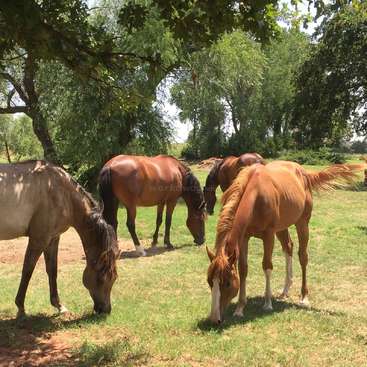
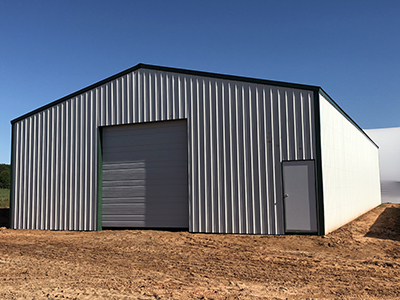
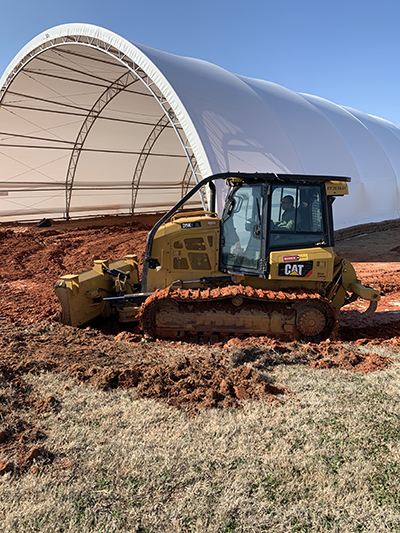
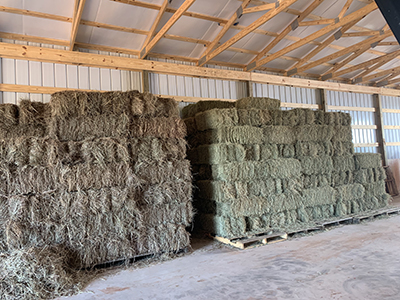
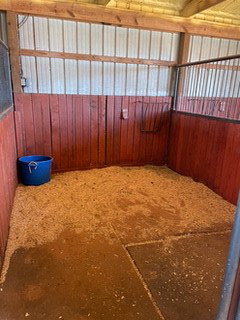
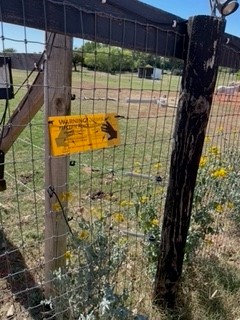
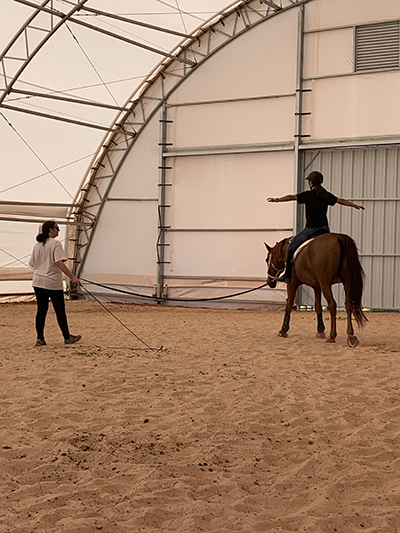
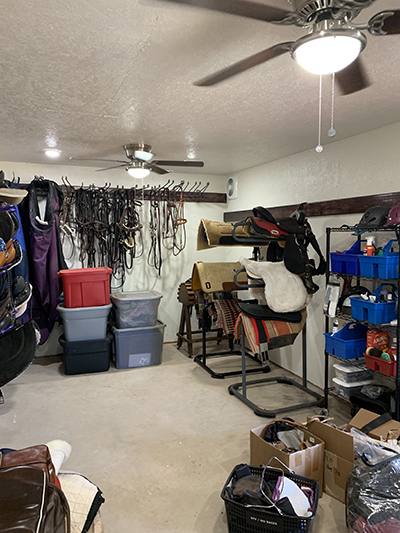
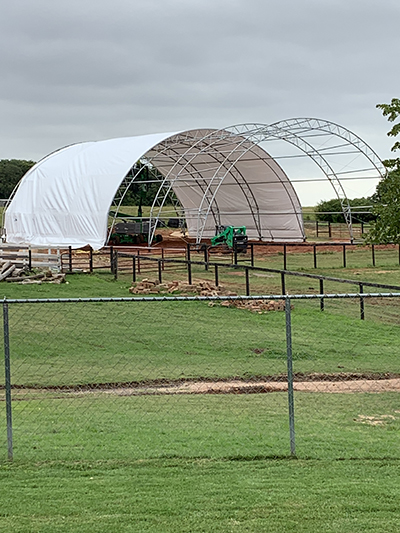
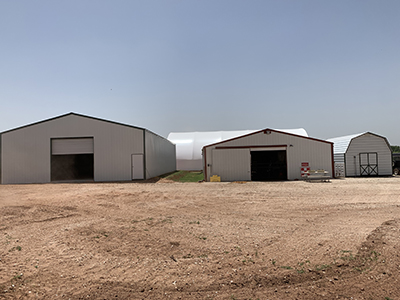
Are the organization's rules, restrictions and warnings (signage) conspicuously posted in easily accessible locations? Yes
Are the organization's emergency contacts, including veterinarian contact information, conspicuously posted in easily accessible locations? Yes
Are human and equine first aid kits easily accessible? Yes
Regarding all shelters where horses are housed including run-in sheds:
Do horses have assigned stalls in the barn/structure(s) or exclusively assigned shelter locations where they are separated from other horses with a barrier? Yes
How many hours per day, on average, are horses stalled or restricted to these sheltered exclusive shelter locations? 0-3;
How often are the stalls/shelters cleaned, i.e., kept in good repair and free of standing water, accumulated waste, sharp objects and debris? 6-7 Days a Week
Do all stalls/shelters allow horses to lie down, stand up and turn around and provide protection from inclement weather (wind, sleet, rain, snow and extreme temperatures)? Yes
Are stalls/shelters kept in good repair, with adequate ceiling height, and free of standing water, accumulated waste, sharp objects and debris? Yes
Are floors constructed and maintained for both good drainage and traction? Yes
Is there a ventilation and circulation system in place to allow free flow of air to control temperature, and humidity, and to prevent air stagnation? Yes
Is wiring inaccessible to horses and maintained for safety in all areas of facility? Yes
Are fire prevention/protection measures (fire alarms, extinguishers and sprinkler systems) maintained and in good working order? Yes
Is there adequate lighting to ensure safety in all areas of facility? Yes
How many hours per day, on average, are horses turned out:
Equines are out 24/7 except they are brought in to feed
Equines are out 24/7 except they are brought in if there is inclement weather
Equines are out 24/7 except when they are being trained
Equines are out 24/7 except when they are used for the conduct of the organization's programs
The following describes the pastures at this facility:
This facility has a written plan in place for pasture management, which includes guidelines for seeding, fertilizing, irrigation, mowing, dragging, harrowing, manure removal, removal of debris, the control of poisonous plants, and a schedule for cleaning
A dedicated staff person(s) is responsible for pasture management
All pastures are fenced to prevent escape or injury
Electric fencing is used; electric wires or tape fence are visibly marked
Fencing checks, such as broken or missing planks, loose fence posts, exposed or loose nails, detached wires, etc., are done regularly
Pastures have natural protection for equines (i.e., trees)
Pastures have man-made protection for equines (i.e., shelters)
Not Checked:
This facility does not have pastures where equines can graze on pasture grass
Barbed wire is used for fencing
Pastures are rotated
This facility does not have pastures where equines can graze on pasture grass
Barbed wire is used for fencing
Pastures are rotated
The following describes the turnout areas other than pastures at this facility:
A dedicated staff person(s) is responsible for the maintenance of turnout areas
All turnout areas are fenced to prevent escape or injury
Electric fencing is used; electric wires or tape fence are visibly marked
Turnout areas have man-made protection for equines (i.e., shelters)
Fencing checks, such as broken or missing planks, loose fence posts, exposed or loose nails, detached wires, etc., are done regularly
Not Checked:
This facility does not have turnout areas
This facility has a written plan in place for the maintenance of turnout areas, which includes a schedule for cleaning, manure removal, and dragging
Barbed wire is used for fencing
This facility does not have turnout areas
This facility has a written plan in place for the maintenance of turnout areas, which includes a schedule for cleaning, manure removal, and dragging
Barbed wire is used for fencing
The following policies and procedures are in place at the facility to restrict public access and to keep horses safe:
The property owner, staff member or caretaker lives on the premises and ensures that public access is restricted and is responsible for the security of the facility and equines
There is a mechanism in place to monitor equines overnight
No Trespassing signs are posted
Hold Harmless signs are posted
Entrance gates are locked at night
Visitors are only permitted at specific times
Visitors are only permitted in specific areas
The property is fitted with a security system that is monitored internally by staff (or the property owner)
The perimeter of the property is fully fenced
Not Checked:
A security guard is present at night
By Appointment Only signs are posted.
Authorized Personnel Only signs are posted
The property is fitted with motion lights
The property is fitted with a security system monitored by police or a professional service
A security guard is present at night
By Appointment Only signs are posted.
Authorized Personnel Only signs are posted
The property is fitted with motion lights
The property is fitted with a security system monitored by police or a professional service
Equine Care/Emergency Preparedness: Horse Feathers Equine Center (*Main) 2026 and 2025 This section is required.
Horse Health Care/Barn Management Records: What system is used to collect and store health/horse care records?
Notebook or equivalent (technology not utilized)
Onsite computer with onsite backup storage system
Onsite computer with cloud-based backup storage system
Our organization utilizes a software application to maintain records
The organization utilizes its own system to maintain records
Our organization would use free cloud-based barn management software if available
The following items are consistent with our feed management plan and practices:
Equines are provided with individualized feeding plans, including supplements, according to the equine's age, breed/type, condition, size, work level and any health issues, consisting of nutritious food provided in sufficient quantity and access to adequate natural forage, or be fed daily, or as recommended by the organization's veterinarian
Feed plans are determined in consultation with a veterinarian
Supplement plans are determined in consultation with a veterinarian
Equines are fed grain in individual stalls
Staff and/or volunteers are trained in proper feed measurements and protocols and observed periodically to ensure they are feeding correctly
The feed chart is centrally located and updated as needed
The area(s) where hay, feed, grain, and supplements are stored are kept clean, free of debris and chemicals, and protected from weather and other animals in rodent-proof and mold-proof containers and grain bins
Feed, supplements and hay types are clearly labeled
Water sources, i.e., buckets, troughs, automatic waterers, etc. are kept clean, free of contaminants, debris and chemicals, protected from weather and other animals, and be positioned or affixed to minimize spillage.
Medications are kept in a secure area
Not Checked:
Equines are fed grain in groups
Equines are fed grain in groups
Is clean, potable water available at all times for all equines? Yes
Hoof Care: How often is hoof care provided for each equine? Every 4-8 weeks and when an issue arises
Dental Care: How often is dental care provided for each equine? Annually and when an issue arises
Horse checks: How often are equines visually and physically checked by personnel at the facility? Every day or 6 days a week
Our organization has the following parasite and fly/insect control protocols in place, including remedies used to control flies and insects:
Our organization follows the parasite control guidelines of our veterinarian, including fecal testing and de-worming
Fly/Insect Control Remedies:
Fly parasites
Feed Through Products
Fly Traps and Tapes
Fly Spray Repellent
Fly Masks
Fly Sheets
Fans
Not Checked:
The following represent the biosecurity practices in place at facility:
Our organization follows the biosecurity guidelines of our veterinarian
Sick, affected and/or quarantined equines do not have contact with other equines or other animals
Staff are trained in best practices related to biosecurity
Volunteers are trained in best practices related to biosecurity
A specific individual is trained and assigned to care for sick, affected and/or quarantined equines
Sick, affected and/or quarantined equines are cared for last if the caretaker must also care for healthy equines
Restricted access signs are posted at primary points of access to sick, affected and/or quarantined equines
Hand sanitizers are available at all primary points of access to sick, affected and/or quarantined equines
Footbaths are available at all primary points of access to sick, affected and/or quarantined equines
Manure and bedding from sick, affected and/or quarantined equines is removed from the facility - not put in open air piles, and not spread on pastures
Quarantine areas, such as stalls, aisle ways, paddocks, and common areas, are cleaned (and needed, disinfected) after conclusion of the quarantine.
Trailers/vans used by sick, affected and/or quarantined equines are cleaned and disinfected after each use and cleaning takes place away from where equines are sheltered
Equipment used by sick, affected and/or quarantined equines is not shared
Equipment used by sick, affected and/or quarantined equines is cleaned of organic debris and disinfected after each use
Latex gloves, or equivalent gloves, are worn when working with sick, affected and/or quarantined equines
Not Checked:
The organization has a written biosecurity plan
Equines are not quarantined on arrival.
The organization has a written biosecurity plan
Equines are not quarantined on arrival.
The following represent the manure removal practices in place at facility:
Manure is piled in an area where equines are not located
Manure is hauled, sold or given away
Manure piles are composted or spread on pastures
Our organization adheres to the manure management guidelines set by the state, local authorities, and/or our organization's veterinarian
Not Checked:
Manure is stored in dumpster(s)
Manure piles are covered
Manure is stored in dumpster(s)
Manure piles are covered
The following steps are taken to help staff and volunteers readily identify each horse on the property:
Equines are assigned the same exclusive stall/shelter location each day
Name plates are located on the stall/shelter location
A map/diagram is posted showing the location of each equine with equine names and photos
Equine photos and profiles are available on the website
Staff/volunteers are provided training on conformation, markings, colors, and breeds
Team leaders work with new staff/volunteers until they are able to identify the equines
Not Checked:
Photos are located on the stall/shelter location
Equines wear halters with nametags
A notebook or binder with photos and information on each equine is easily accessible
Staff and volunteers are provided with an information packet with equine profiles, including photos and detailed descriptions
Photos are located on the stall/shelter location
Equines wear halters with nametags
A notebook or binder with photos and information on each equine is easily accessible
Staff and volunteers are provided with an information packet with equine profiles, including photos and detailed descriptions
Our organization has the following policies and procedures in place pertaining to tack, apparel and equipment:
Saddles are shared
Saddle pads are shared
Bridles are shared
Bits are shared
Blankets are shared
Sheets are shared
Blankets, sheets and turn out apparel are fitted and utilized for each equine appropriate to the equine's needs and the weather conditions
Blankets, sheets and turn out apparel are cleaned regularly as needed
Halters are shared
Riding Tack is always cleaned after each use
Riding Tack is inspected for overall working condition before each use by trained personnel
Riding Tack is assessed for fit before each use by trained personnel
Riding Tack is assessed for fit by trained personnel when an equine's body condition changes
Riding Tack is assessed for fit by trained personnel when an equine's disposition changes
Assigned riding tack is clearly labeled
Riding Tack is stored in a climate-controlled location
Helmets are shared
Helmets are cleaned/disinfected after each use
Helmets are replaced after a fall
Helmets are replaced at least every five years.
Not Checked:
All equines have specifically assigned apparel, equipment and tack (saddles/bridles if ridden) that is not shared
Turnout apparel is shared
Riding Tack is always cleaned at least weekly
Riding Tack is cleaned only when needed
This facility enlists the services of a professional saddle fitter at least once a year
No equines are ridden; saddles, bridles, etc. not applicable.
All equines have specifically assigned apparel, equipment and tack (saddles/bridles if ridden) that is not shared
Turnout apparel is shared
Riding Tack is always cleaned at least weekly
Riding Tack is cleaned only when needed
This facility enlists the services of a professional saddle fitter at least once a year
No equines are ridden; saddles, bridles, etc. not applicable.
Emergency Preparedness: Horse Feathers Equine Center: *Main This section is required.
The following plans, policies, and procedures are in place at the facility to handle emergencies and address weather related issues, fire safety procedures, and/or any additional hazardous scenarios the facility could potentially experience:
The facility owns or has access to a generator
The facility maintains at least two weeks of hay, feed, shavings and medications
The facility collects and maintains medical information from staff, volunteers, and clients
The facility maintains appropriate liability and/or workers' compensation insurance
Not Checked:
Emergency procedures are posted prominently
The organization has a written emergency preparedness/safety plan (EPP)
Emergency procedures are posted prominently
The organization has a written emergency preparedness/safety plan (EPP)
The facility follows the specific procedures to help PREVENT emergency situations:
NO SMOKING signs are posted prominently
Hay is stored away from permanent or temporary structures where equines are stalled
Permanent or temporary structures where equines are stalled are kept free of dust, cobwebs, trash, cleaning rags, and other flammable items
Aisles and doorways are kept clear
Heaters with automatic shutoff settings are used
Not Checked:
Smoking is strictly prohibited
Smoking is strictly prohibited
How often are the following checked or performed?
Fire Extinguishers are checked: Quarterly
Smoke detectors are checked: Monthly
Fence lines are checked: Weekly
Turnout Areas are checked: Weekly
Sprinkler systems are checked: Not at all/NA
Fire drills are conducted: Semi-annually
Review of safety protocols with staff are conducted: Semi-annually
Review of safety protocols with volunteers are conducted: Quarterly
The Emergency Preparedness Plan is reviewed and updated: Semi-annually
Equine Transportation: 2= Onsite: 2 (1 + 1) + Offsite: 0
2-horse van/trailer with truck:
1 Owned onsite
4-horse van/trailer with truck:
1 Access onsite but not owned